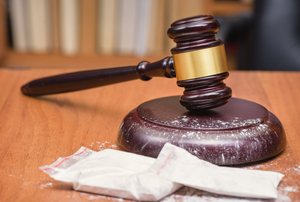Why Confidentiality Is Critical When Working with a Drug Attorney
Corps
When you are facing drug charges, one question weighs heavily: What really happens to the private details you share with your lawyer? With your freedom, reputation, and future on the line, you cannot afford to take chances. Confidentiality is not just a professional duty; it is the foundation of trust between you and your drug attorney.
Without it, you may hold back crucial facts that could change the outcome of your case. Many people in the US face this dilemma every day. The fear of exposure, judgment, or even retaliation often prevents them from being honest. But here is the reality: silence or half-truths can destroy your defense faster than the charges themselves.
That is where confidentiality transforms the attorney-client relationship into a shield. When you hire a drug attorney who values confidentiality, you are giving yourself a chance to fight with all defenses on the table.
Confidentiality and Your Legal Defense
When you work with a drug attorney, confidentiality is not optional—it is legally protected. What you disclose in private stays between you and your lawyer. This safe space allows you to share sensitive details about your arrest, your personal history, or even mistakes you made. Those facts often hold the key to shaping a defense that prosecutors cannot easily break apart.
Why Privacy Strengthens Your Drug Case
A confidential bond means your attorney can analyze every angle without missing hidden details. If you hesitate to reveal everything, your defense weakens. But when you speak openly, your lawyer can challenge evidence, negotiate better deals, or even expose flaws in the prosecution’s case. Every strong defense begins with truth, and truth only surfaces when privacy is guaranteed.
The Consequences of Breaching Trust
The risks of broken confidentiality are devastating.
- Details of your case could be used against you.
- Your reputation could be harmed outside the courtroom.
- You may lose trust not only in your attorney but also in the system meant to protect you.
Once trust is gone, so is your best chance at a reduced sentence or dismissal.
Choosing the Right Drug Attorney
Not all attorneys treat confidentiality with the same seriousness. Some talk about privacy; others live by it. You need a drug attorney with a track record of respecting client trust while delivering real results.
They combine deep knowledge of drug laws with negotiation skills and courtroom power. Their reputation, experience, and ethical discipline set them apart from ordinary lawyers.
Final Thoughts
Confidentiality is not just a promise when you face drug charges, it is your defense strategy’s lifeline. Without it, your attorney cannot build the whole picture, and without the full picture, your case becomes weaker. You deserve a drug attorney who treats your privacy as sacred, not negotiable.
Trust them with the truth, and they can fight for your freedom. In the end, the right lawyer does not just protect your rights in the courtroom; they protect your dignity, your story, and your future outside of it.














commentaires